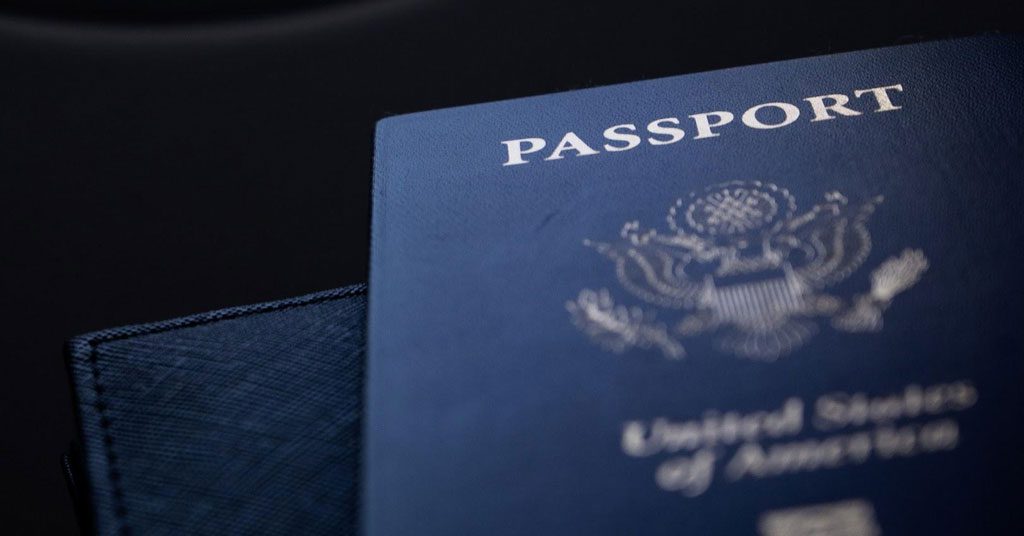
EenVandaag: Banks reject American Dutch

Around 40,000 American Dutch are at risk of being rejected by their banks. Accounts will be closed and mortgage applications declined if they fail to disclose their American social security number or tax identification number to their bank by 31 December 2019. Dutch national TV programme EenVandaag reports.
Thousands of Dutch citizens are at risk of losing their bank accounts, specifically Dutch citizens who also have American nationality. Sometimes they themselves don’t even know they are dual citizens as a result of, say, their parents being American or the fact that they were born in the United States.
Without an American Social Security Number (SSN) they will no longer be welcome at their Dutch bank – with all the ensuing consequences.
Watch the EenVandaag report:
Mortgage application denied due to American nationality
Wessel Korrel is about to move house. But he couldn’t celebrate his move due to rules imposed by the American tax authorities. “I’m losing sleep because of this.”
Korrel is almost done packing up his moving boxes, but he’s troubled: “I found a nice house. Everything’s ready. The contract has been signed and the down payment made.” But now the bank is threatening to throw a spanner in the works.
American and Dutch nationality
As it happens, Korrel has both American and Dutch nationality. He was born in the United States while his father was posted there for work, and he lived there for six months as a baby. Which is why the bank now wants his American social security number (SSN/TIN). But Korrel doesn’t have one and applying for one is turning out to be a nightmare.
The bank sent him a letter in early February warning that unless he provided the requested information within a week his mortgage application could not be processed. Korrel is afraid that the bank will decline the mortgage before he has the keys to his new house: “It’s too late to turn back. Everything’s been signed. If they had told me this when I applied for the mortgage, I never would have started the process.”
40,000 American Dutch in trouble
The Dutch Banking Association (NVB) is aware of the problems facing some 40,000 American Dutch dual nationals, an estimated half of whom do not have an American social security number.
However, according to the NVB, the customers themselves have to take action: “If the banks do not supply this information to the American authorities, the US is threatening to hit them with stiff penalties and remove them from the white list. That is not acceptable.”
Americans Overseas helps American Dutch
Daan Durlacher is the founder of Americans Overseas, a group that represents the interests of Dutch citizens who also have American nationality. He says he receives dozens of ‘panicky calls’ every day from people who don’t know what to do. “America is the only country in the world – apart from Eritrea – that taxes all Americans, no matter where they are in the world. This policy leads to dire situations. Many people don’t even realize they are American nationals.”
Problems facing American-Dutch due to FATCA
These problems are the result of the FATCA agreement with the US. FATCA was designed to fight tax evasion, but it also has a major impact on American-Dutch dual nationals. Anyone who has American nationality is liable to pay US taxes, even if they don’t live there.
By 31 December 2019, Dutch banks must provide the social security number of every customer who is an American-Dutch dual national, but they often don’t have that information. If the banks fail to do so, they can be hit with stiff fines and removed from the white list. As a result, banks have warned customers that accounts will be closed if they do not provide the relevant information in good time.
American Dutch apply for American Social Security Number
Wessel Korrel has done everything he can to apply for an American SSN/TIN, but the process can take six to nine months. He has to demonstrate that he hasn’t lived in the US for a long time, yet his primary school report cards were not accepted as evidence. There is a one-hour walk-in consultation session once a month at the American consulate. And when that hour is up, you have to wait another month before you can come back.
Get help from Americans Overseas
We, the founders of Americans Overseas, were born in the Netherlands and obtained our American nationality through our (American) mother.
When we heard about this for the first time around 2013, we were in total disbelief (it can’t be true!), anger (how can they do this?), fear (am I going to get fined or pick up other problems?), and panic (what should I do?).
It is (unfortunately) true that there is an additional American tax levy. But there’s no information from the local government, and when approached, the consulate referred us to the IRS, and the IRS was impenetrable.
That’s why we started this initiative to help people from all over the world by providing proper information to avoid unnecessary panic and offering help free of obligation and free of charge. If needed, we have a network of affordable professionals (accountants) who can help you with your tax obligations.
If you have more questions about USA tax you can contact us at Americans Overseas.
Frequently asked questions
Understanding the US tax system, the obligations, and all the additional terms can be difficult. Especially if one lives outside of America. Is your question not answered? Contact us.
-
Who is required to file taxes in the US?
U.S. citizens and resident aliens who live abroad are generally required to file a federal income tax return and pay taxes on their worldwide income.
Read more... about Who is required to file taxes in the US? -
Do US citizens living abroad still have to file taxes in the US?
Yes, US citizens are required to file taxes on their worldwide income, regardless of where they are living.
Read more... about Do US citizens living abroad still have to file taxes in the US? -
How can I cash my US check?
Received an American check? You can cash your check in the following ways: cash the check at your own bank, transfer to another person (endorsement), cash checks using an online service or cash the check by another bank.
Read more... about How can I cash my US check? -
Are there any special tax forms required for US citizens living abroad?
US citizens living abroad may be required to file Form 2555 and/or Form 1116 to claim the foreign-earned income exclusion.
Read more... about Are there any special tax forms required for US citizens living abroad? -
What is FBAR filing?
FBAR (Foreign Bank Account Report) filing is the requirement for certain U.S. individuals and entities to report their foreign financial accounts to the Financial Crimes Enforcement Network (FinCEN) of the U.S. Department of Treasury. The FBAR filing requirement applies to U.S. persons who have a financial interest in, or signature authority over, one or more foreign financial accounts if the aggregate value of those accounts exceeds $10,000 at any time during the calendar year.
Read more... about What is FBAR filing?






